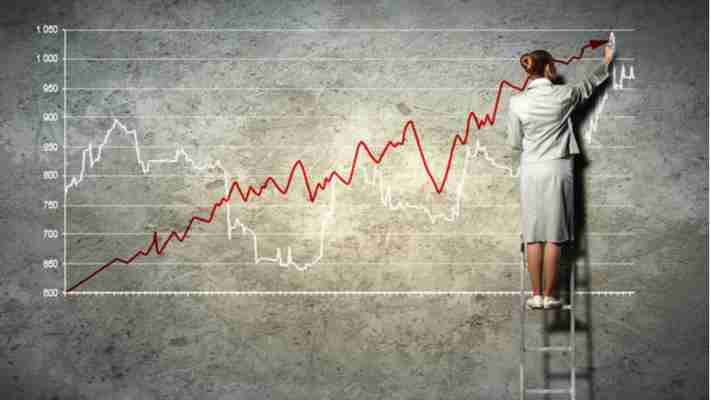Applying economics in your everyday life
Just as addition and subtraction help you in your daily life and tasks, understanding some basic economic concepts can come in equally handy.

Subjects like mathematics, science, and language are considered to be essential for building a child’s intellect and enhancing their understanding of the world. The social science of economics may not be considered as important, but it should be. Economic concepts, in addition to those of demand and supply, play a recurring and significant role in one’s daily life. If you know some of these essential concepts, you can make smarter decisions when it comes to time, money, work, and even personal relationships.
Before we get started, it is important to note that there’s no need to be intimidated by the idea of economics. As long as you’re living a functional life, you will understand, relate to, and be able to apply these concepts easily and effectively.
Related: 5 Economic concepts you need to know
1. Opportunity cost
Do you often feel as if you don’t have enough time and energy for everything on your plate? What you need to do is learn to prioritise and manage your time better. Understanding opportunity cost allows you to do just that! Economics exists because of two reasons – first, resources are limited; and second, human wants are unlimited. Economics is the study of how society uses its limited resources in the best possible way.
Opportunity cost is the cost of lost alternatives when you pick an option or make a choice. Picture this: You have an hour before bedtime and three ways to spend it – finish reading the book you started a month ago, scroll through social media, or video call your best friend. If you pick scrolling through social media, the opportunity cost of that is reading as well as catching up with your friend.
When you start putting things in terms of opportunity cost, you’ll realise what’s worth your time and what isn’t. It will also help you make daily choices that are in line with your goals and focus on the bigger picture. So, the next time you have to decide whether you should invest your time, energy, or other resources on a project, social event, or task, just ask yourself: ‘What’s the opportunity cost of this?’ It will help you determine if the effort is truly worth it or if there’s a better way to utilise your resources.
2. The Veblen effect
Do you tend to pay more for certain products – say, clothes, bags, or electronics – instead of going for cheaper alternatives even though the quality and features seem pretty much the same? That could be because of the Veblen Effect.
When people use price as an index of quality, they end up paying more money for a product than they need to. This is often because they don’t know how to make a rational comparison between the two products. They either lack the knowledge or capacity to examine the physical properties of a product (durability, reliability, etc.) and end up thinking that whichever product is priced more would automatically be of better quality. They choose a product based on that assumption alone.
A name-brand product can often be twice as expensive as an unbranded product and still provide the same utility. Now that you know about the Veblen effect, you can save more and budget better by making smarter choices when shopping.
Related: Live in a metro city? Pay attention to these expenses so you don't go broke
3. Diminishing marginal utility
When was the last time you felt as though the efforts you were putting into something – your daily job, a relationship, working out – were just not reaping benefits, at least not in the right measure? Understanding the law of diminishing marginal utility could give you the answer to fix that. But first, it’s important to know that utility here means ‘satisfaction’ or ‘happiness’ – basically a positive value addition.
As per the law of diminishing marginal utility, beyond a certain level of consumption, the utility derived from each additional unit decreases. Think of when you’re hungry. The first bite you take gives you immense utility (satisfaction) since you’re finally eating after being hungry for a while. The second bite you eat also provides you satisfaction but slightly less than the first bite since now you’ve already had some food. As you keep eating, the utility you get from each bite keeps on decreasing. Finally, at some point, if you eat any further, you will not get any utility – in fact, it may result in negative utility. This happens when you continue eating even when your stomach is full simply because it’s your favourite food.
Just because doing something in a specific way worked at some point, it doesn’t mean it will keep working if you do more and more of it. Maybe you need to change your strategy. For instance, doing the exact same exercise week after week isn’t going to be as helpful for your body as changing workouts from time to time.
Related: How to build a path for a financially healthy 2020
4. Sunk cost fallacy
It’s hard to admit losses, but it’s harder to stop and exit at the right time. This applies to investments, relationships, and just about everything else that requires you to put in significant amounts of money, time, effort, and other important resources. A lot of people, however, fall victims to the sunk cost fallacy.
Sunk cost is basically the cost you have incurred and cannot recover. Sunk cost fallacy is when a person continues a specific endeavour, behaviour, or commitment even if it is failing – simply because of the previous investment they have made in terms of time, money, or effort. For instance, if you order too much food and instead of leaving the extra food once you’re full, you end up overeating just because you have already paid for it, that’s sunk cost fallacy at play.
You would know at least one person who continues to be in a failing relationship that is clearly unhealthy just because of how long they have already been in that relationship. That, too, is sunk cost fallacy. It’s critical to cut your losses at the right time and know when to walk out, and now you can be mindful of that.
Related: What is stop-loss? And when to set your stop-loss?
That wasn’t hard, was it? Go ahead and share these economic concepts with your friends and family. For one thing, they will be super impressed that you have such a good understanding of economics. Second, they too would benefit from applying these concepts in their daily lives.
5 Economic Concepts You Can Apply To Your Daily Life To Make Better Personal Finance Decisions
Most of us might understand the field of Economics as revolving around the study of the financial markets and the economy of a nation or the world. While that’s true, the fact is, many of the fundamental concepts in Economics also are also relevant and applicable on a personal level.

Just like the economy, we have limited resources and limitless wants – and learning how to make decisions around scarcity forms the fundamental concept of economics. Applying concepts from Economics, which study how people and markets make decisions about how to allocate resources efficiently, can be instructive in helping us get better outcomes in our personal finances.
#1 Opportunity Cost
Opportunity cost is the utility you’re missing out by choosing a certain course of action. Every life decision we make comes with opportunity costs. For example, choosing to further your studies after graduation would mean forgoing a few years of employment income and the possible career progression from starting work earlier.
Being aware of opportunity costs can help you make better financial decisions instead of just following standard advice. For example, most people will assume that buying a house is a good financial decision. However, sometimes, renting is a better choice. Being aware of the opportunity cost is important because you know the potential downsides of making that choice.
Even a decision to not decide has an opportunity cost. If you put off investing because you either have no time to do so or cannot decide between the different investment strategies, investment products and/or the brokerages to use, you are also paying a cost: your money are not being invested and taking the advantage of compound interest over time.
Read Also: [Beginners’ Guide] How To Start Investing In Singapore
#2 Sunk Cost Fallacy
Sometimes we hold on to things and even ideas that no longer serves us because we have already put in so much into them. This is sunk cost fallacy.
This is important especially for investments because as your life circumstances change, you need to re-evaluate your investment strategies and perhaps invest more or divest certain investments. For example, most people have difficulty in surrendering or terminating insurance policies that no longer fit their life circumstances because of the insurance premiums that they have already paid.
Read Also: Buyer’s Remorse: 3 Options For You If You Committed To A Package You No Longer Want
#3 Law Of Diminishing Returns
In life, we tend to expect results if we put in effort. However, the law of diminishing returns reminds us that there is the point where putting in more effort does not give us the same results as it did earlier.
For example, in the initial stages of investing, investing more capital and knowledge will quickly gain you an edge over your peers. However, once you have mastered the fundamentals and have good financial habits and systems in place, spending double the effort and time in investing may not get you double the investment returns.
In fact, spending too much time looking at your investments may be counter-productive if you become obsessively worried.
Read Also: 6 Robo Advisory Platforms In Singapore Share Investing Mistakes That People Are Making During This Volatile Period
#4 Marginal Cost Of Production
Conversely, the marginal cost of production states that past a threshold, it actually costs less to produce something. This ties in with the law of diminishing returns. The threshold for your investment knowledge to be productive is when you have mastered the fundamentals and have set up good financial habits and systems. Past this point, it costs you less in terms of incremental effort to produce the same results.
While it may be very difficult to start a side hustle such as an online store or freelance work, once you have established yourself, the next sale or contract is not as difficult to achieve as getting your first customer or client. This is the marginal cost of production at work.
Read Also: 5 Sideline Hustles That Singaporeans Can Do To Boost Their Income – Even During Circuit Breaker’s Phased Lifting
#5 Externalities
Externality is the cost or benefit that affects a third party who did not choose to incur that cost or benefit. In life, it may not be easy to define who is a third party in any interaction, but some decisions can have unintended effects.
For example, having good financial habits and systems may have a positive externality of a better relationship with your spouse because you are no longer stressed about finances.
Listen to our podcast, where we have in-depth discussions on finance topics that matter to you.
Economics in Everyday Life
Many assume economics is a subject best left for government officials and students who love statistics. However, everyone incorporates tenets of this field into their lives on a daily basis: fathers shopping at the grocery store for dinner, teenagers deciding how to spend their summer and a truck driver calculating his route are just a few examples. Economists Charles Wheelan and Burton Malkiel explain in their book, “Naked Economics: Undressing the Dismal Science,” that despite the pervasiveness of economics in everyday life, too few people understand how this field applies to them.

Economics Defined
Economics is the study of how people, firms or institutions choose to allocate resources. Resources are not always dollars and cents – time, skill and land are all resources. People make economic decisions with the intention of maximizing their return. For example, a college student might allocate his time and substantial amounts of money to earn a degree. In return, that degree will ideally yield him numerous job opportunities and an increased income.
Life Decisions
Some of the most important life decisions are made using economic reasoning. When you choose to have children, whom you marry and where you will live are just a few of these. Before deciding on any of these events, a person performs what economists call a “cost-benefit analysis.” Simply put, the pros are weighed against the cons. If one choice provides more utility, or personal satisfaction, than another choice, a decision is made.
Household Budgeting
Economics permeates into everyone’s daily life in the area of purchasing decisions. How much money you have in your bank account dictates what types of purchases you make. Economics groups purchasing choices into three groups: luxury goods, normal goods and inferior goods. defines inferior goods as products less desired when income increases. An example is store-brand cereal. As you earn more money, you might purchase name-brand cereal instead. More normal goods, like movie tickets and restaurant outings, are purchased with a rise in income. The purchase of luxury goods like a Ferrari or Porsche also rises once a certain income is achieved.
Price Tags
How much you buy once an item’s price tag changes is also an economic issue. The responsiveness to a change in price is known as elasticity. If you continue to buy a product in the same quantity regardless of a price change, like gas, then it is an inelastic good. On the other hand, if you cease to buy lattes when the price is raised by 50 cents, then coffee is elastic.
Employment
